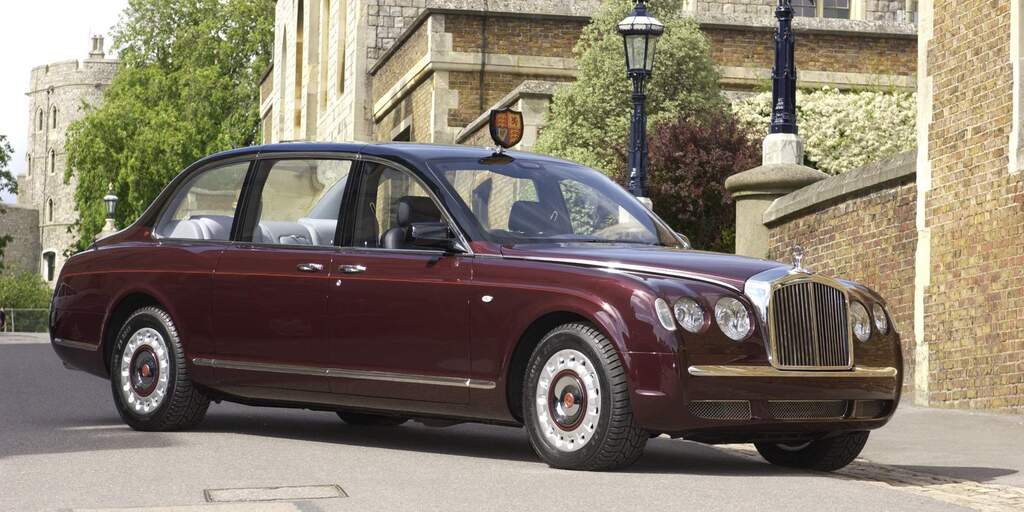


Posted on 09/20/2025 5:42:05 PM PDT by WhiteHatBobby0701
The Australian Government’s 2035 emissions target is ambitious, and the vehicles we buy are included in the pathway.
Earlier this week the Federal Government announced it had set a national target to reduce overall emissions by 62 to 70 per cent (compared to 2005 levels) by 2035, something it called “ambitious, achievable, and in Australia’s national interests”.
Spearheaded by the Climate Change Authority, the 2035 Targets Advice is the most aggressive planned reduction in emissions ever seen in Australia, and of course vehicles have their role to play.
According to the CCA, to help meet this target approximately 85 per cent of all light vehicle sales – which excludes trucks etc. – will be electric by 2035, compared with 75 per cent of commercial vehicles.
The 2023 Targets Advice report reads that to meet the ambitious emissions targets, Australia would be required to put “more than 20 times the number of battery electric passenger vehicles on the road than there are today”.
“This means over five million EVs that would otherwise have been petrol and diesel vehicles. Around half of all light vehicles sold between now and 2035 would need to be EVs.”
Currently EVs account for just eight per cent of all new passenger vehicles sold in Australia this year with 64,367 deliveries, having greatly increased in 2023 but stumbled in 2024 due to a year of weaker demand for market leader Tesla.
By contrast, petrol power reigns supreme with a 40.8 per cent market share, followed by diesels (30.8 per cent), traditional hybrids (160 per cent) and plug-in hybrids (0.4 per cent).
The CCA noted the continual development of EVs and subsequent price reductions will aid consumers to purchase battery-powered vehicles.
“In the transport sector, EVs are forecast to achieve cost parity with internal combustion engine vehicles, which currently account for more than half of all transport emissions, this decade or early next, across most major markets,” the 2035 Targets Advice reads.
“This will allow Australian households and businesses to make their next light vehicle purchase an EV at no greater expense than a traditional vehicle.
“Falling purchase prices, low cost of ownership, continued charging infrastructure rollout, battery technology improvements that enable more choice when it comes to larger vehicles and longer ranges, and government policies like the New Vehicle Efficiency Standard, could support similarly high uptake in Australia over the next decade.
“This would position Australia well for more significant emissions reductions beyond 2035.”
The introduction of the New Vehicle Efficiency Standard (NVES) – where carmakers are fined $100 for each gram per kilometre the vehicles they sell exceed a set emissions limit – has also become key to cutting tailpipe emissions, and has already led to brands introducing cleaner models to Australia.
For ‘Type 1’ passenger vehicles, this limit is 141g/km in 2025, before reducing to 117g/km in 2026, 92g/km in 2027, 68g/km in 2028 and 58g/km in 2029.
For ‘Type 2’ light-commercial and off-road vehicles, the target is 210g/km in 2025, 180g/km in 2026, 150g/km in 2027, 122g/km in 2028 and 110g/km in 2029.
The NVES regulations are due to be reviewed next year, and the Federal Chamber of Automotive Industries (FCAI) – the peak body for carmakers locally – says it is already helping to keep the market in touch with emissions targets.
“Carmakers are continuing to expand the range of low and zero emission vehicles, with more than 100 battery electric models and more than 50 plug-in hybrids now available in the Australian market,” FCAI chair Tony Weber said.
“However, BEVs make up less than eight per cent of new vehicle sales so far this year. This highlights that challenges still exist if we are to meet the targets set by government.
“Consumers are not yet purchasing EVs at the rate that was expected, nor at the rate required to meet the emissions targets.
“Key to driving EV take-up is ensuring there is adequate charging infrastructure, reducing the total cost of ownership and that EVs meet the needs and desires of Australian motorists.”
Weber noted both the government’s $40 million commitment to kerbside and fast EV chargers, as well as the FCAI’s members towards launching more vehicles locally.
“Ensuring the availability of charging infrastructure is essential if the NVES is to make a difference in meeting climate targets.
“The legislated 2026 review will be critical to providing an early indication of how the NVES is operating, and how other policies and funding programs are influencing the market.”
It’s worth noting the non-legislated target of Australia’s EV mix reaching 85 per cent by 2035 is still well behind other major markets, such as the European Union where new petrol and diesel vehicles will be banned from sale by that deadline.
Fancy car. My last one was an Infiniti. Loved that car, ,but had corneal transplant that didn’t work out very well, so I can’t drive any more. Friends and cabs take me to various places Lucky enough to live within walking distance of Trader Joe, Safeway, Naturak Grocr and a drug store.
Always.
Climate Change Authority = CCA....../snicker
Cadillac Blackwing?
Agreed. When I meet fellow EV owners and they thank me for saving the world or whatever, I always tell them that they’d freak if they knew how much real pollution went into making the EV, versus other things making CO2 which is plant food. But I don’t hate trees so I don’t hate CO2, unlike the Warmageddon doomsday cult following other EV owners who keep falling for the lie that the world is going to end in 10 years, this time they mean it.



They want the petroleum resources to be used only by the ruling elite and the military. Pushing EVs on the majority of "lesser" consumers works well to advance that plan. The fear-mongering over the environment is just part of the deception, allowing people to believe these were choices they made based on sound reasons.
Yep, paint is Wave Blue.
Aussies need to revolt against their collectivist Gov’t [that they stupidly elected].
Did it have a “POWERFUL FRONT GRILLE”?
Ridiculous. Australia could disappear tomorrow and would not global climate at all. So the of dictating which cars they but so they can affect the earth’s temperature is just preposterous.
I would select the last of the V-8s.
IIRC-—AUSTRALIA HAS “ ROAD TRAINS” FOR MOVING GOODS ACROSS THE OUTBACK.
One truck & 2 or more trailers.
TRUCK with 2 trailers are allowed here in Nevada===called ‘triples’. HAY/GRAVEL/UPS/FED EX
MY HAY GROWER: EACH TRAILER HOLDS 288 bales.
2 X 288 PLus 256 on the truck==832 bales.
Bales are 3 string & weigh 100# each===83,200 total Weight.
When I built current property—on a corner-—have gate on each side of quarter circle. Hay truck can enter thru one set of gates (32’ wide) and exit out other set, with no problems. ALL PERIMETER GATES ARE DOUBLE 16’= 32’ openings.
“My last car had 668 hp and top speed of 206 mph.”
I want your last car, unless you crashed it.
Climate Change = Government seizures.
A Triple.
Pacific Intermountain Express [P-I-E] used to run those back in the day.
https://en.wikipedia.org/wiki/IU_International_Corporation
No vehicle is safe in Australia that does not have a roof sturdy enough to stop a drop bear.
Never really wanted to visit Japan, or at least it’s not near the top of the list.
I haven’t seen a triple on the road for quite a while. Almost got swatted off the road by a UPS triple one rainy night long ago, on U.S. 95 in the curves along Walker Lake.
,,, Japan’s worth a look. Very orderly but foreign enough to be interesting. Bangkok and Taipei have a bit more spirit and your buck goes further.
Disclaimer: Opinions posted on Free Republic are those of the individual posters and do not necessarily represent the opinion of Free Republic or its management. All materials posted herein are protected by copyright law and the exemption for fair use of copyrighted works.